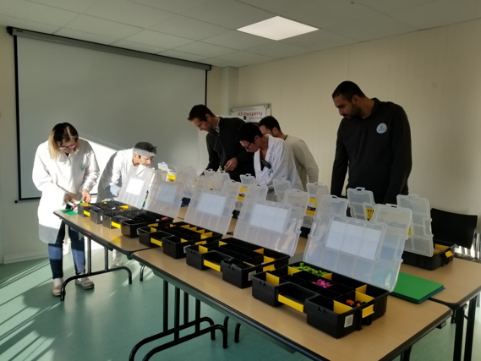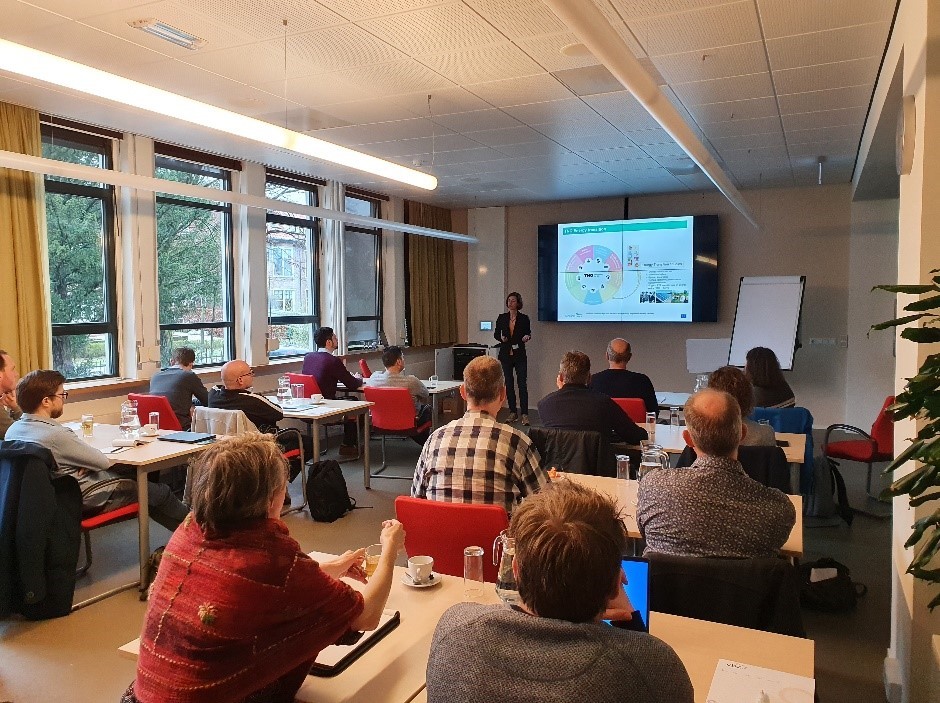 https://www.synyo.com/wp-content/uploads/SYNYO-NEWS-featured-image-NEW01009401EN.png
400
459
leo
https://www.synyo.com/wp-content/uploads/2017/09/synyo-logo.png
leo2026-02-01 13:41:502026-02-03 10:18:50GreenEsteem: Project for sustainable Nature-Based Solutions through Co-Creation Launched
https://www.synyo.com/wp-content/uploads/SYNYO-NEWS-featured-image-NEW01009401EN.png
400
459
leo
https://www.synyo.com/wp-content/uploads/2017/09/synyo-logo.png
leo2026-02-01 13:41:502026-02-03 10:18:50GreenEsteem: Project for sustainable Nature-Based Solutions through Co-Creation LaunchedINDUCE

INDUCE: Training activities in France & The Netherlands
The methodology and tools developed within the INDUCE project are being tested and validated within 15 pilot companies in the agro-food industry. They are introduced in chosen companies in France, Spain, The Netherlands and Germany. The INDUCE partners used various approaches to implement the methodology – as presented on the examples from France and The Netherlands.
Agro-food companies are among the largest consumers of energy for heating, cooling processes and for storing food or beverages under controlled temperatures. Best energy practices help to reduce energy consumption. To achieve this, there are several possible entry points, including the behaviour of people in their work environment. the INDUCE project “Towards a sustainable agro-food Industry: Capacity building programs in energy efficiency” is developing an accessible online platform where training, online courses, procedures and other tools will be made available to food and beverage companies wishing to improve their energy efficiency. Some of the findings have now been implemented in training workshops in France & The Netherlands, focusing not only on technical aspects, but also on cultural and organizational ones.
Using playful collective intelligence pedagogy in French workshops
In France, the consortium partner is ACTIA (Technical Coordination Association for the Food and Beverage Industry), and its actions are implemented by its technical partner CRITT PACA (Regional Center for Innovation and Transfer of Agro-food Technologies).
They chose to develop and run workshops with a playful collective intelligence pedagogy using construction games. These games should encourage sharing and allow solutions to emerge to improve energy efficiency by combining the points of view of different departments within the same company (maintenance, production, etc.). The construction approach is accessible to all hierarchical levels from general employees to the company managers and stimulates several skills such as taking initiative and problem solving. It also removes barriers to written communication (no recourse to writing) or oral communication (once constructed, the idea is easier to describe).

Figure 1: Applying playful collective intelligence pedagogy in French workshops
The first workshop was held in a winery. After playful exercises to get used to construction, participants were asked to choose an equipment or an energy use according to their daily tasks and then to represent it in construction. They were asked to represent the operation of the chosen equipment and the points of attention for energy efficiency. Over time, the links between the different utilities and production equipment could be built. At the end of each stage of construction, each person presented his or her work to the others.
Increasing energy awareness in trainings for Dutch organisations
About 20 participants joined the Dutch Train-the-Trainer session to increase energy awareness in the organization. The training was conducted by KWA and TNO. One major question during the Dutch training was, how the urgency for increased energy-efficiency measures can be communicated to the higher management.

Figure 2: Insight into the Dutch Train-the-Trainer workshop
The behavioural component is essential for the energy transition in companies to succeed. INDUCE has tailor-made training materials for the food industry to help companies increase energy awareness and implement energy saving measures. In the Netherlands, the project was carried out by FNLI, TNO and KWA.
How did participants experience the training and what do they encounter in their company around this topic? The two major aspects are time and money. It is quite difficult to take both aspects into account, however, the Induce website contains tools that may be used to convince colleagues and the management. The tools also help to make calculations and submit different proposals within the company – which provides insights.
All participants were trained to become an INDUCE certified trainer. They were provided with a step-by-step plan so that they can record the needs within their company regarding energy-related topics, and subsequently design a custom program for effective interventions targeting the management and employees using the INDUCE toolkit. At the end of a full day of training, all of them reflected positively on what they had learned and all went home with a plan for putting the information to use. Participants will be invited to a follow-up webinar to further assist them with developing their training programs.
Links
INDUCE platform
https://www.energyefficientfoodindustry.eu/
INDUCE Project Website
Keywords
Energy efficiency, food and beverage industry, Energy-Efficiency Directive (EED), Human-Centered Design




